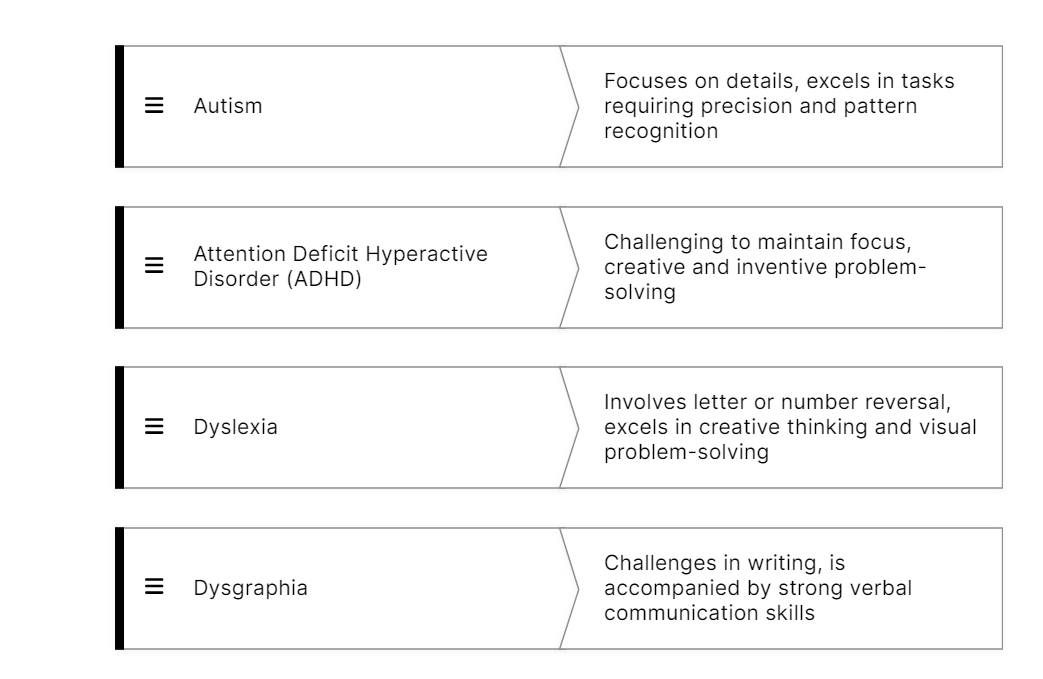I appreciate the fact that some employers recognize that some of their employees struggle with cognitive disorders. But, asking someone with ADHD to click through a very boring presentation about neurodiversity is almost peak irony. Not to mention, trying to distill such complex disorders down to one sentence is practically guaranteed to fail.
Props for trying I guess.
Autism further: prone to arson if routines around the workplace change even slightly
Have you seen my stapler?
Red Swingline by chance?
they switched from the Swingline to the Boston stapler, but I kept my Swingline stapler because it didn’t bind up as much, and I kept the staples for the Swingline stapler and it’s not okay because if they take my stapler then I’ll set the building on fire…
The best part of that story is: swingline didn’t sell a red one. They made it after the movie became popular.
Welp i guess staplers will be today’s topic to hyperfocus
I guess it depends on context. If it’s an awareness thing aimed at helping peers and leaders support people, I think it’s a good start. Most such things are inaccurate, though. This one says “challenging to maintain focus”, which is only true of something I’m not interested in. At other times, it’s more challenging to switch focus. 🙂
Mind if I hijack this thread for a related topic?
I’m on the hook for doing a short talk on ADHD in my workplace’s next all-hands meeting (I volunteered). I figure I’ll use the time to correct some misunderstandings. I’ll probably start with the name - calling it “attention deficit” is like referring to color blindness as “vision deficit” - it’s true in some circumstances, but not very useful. I’m a bit leery of going with “executive function impairment”, since I think that many people might think all congnition is part of “executive function” and hear that as “thinking impaired”, when it’s much more specific.Does anyone have a term they like better than ADHD to describe what’s really going on with us?
I personally wouldn’t create a new term for it. ADHD is the medically and socially accepted right now and while I don’t disagree with you it’s not derogatory so not a huge need to change. The content of your presentation discussing the details and nuances of adhd symptoms is what is more important. But calling out that it’s not just attention deficit is probably relevant.
I think of it as a problem of “attention dysregulation”. At least that feels like a closer description, since attention is a very central component in many of the difficulties we experience - it just can’t be reduced to a “deficit” (whatever that could even mean).
You probably know this already, but I like to (re)phrase existing knowledge in several ways even if just for myself, because one can know something in more than one way: Attention regulation is how a brain prioritises, filters, and emphasises information about the external world, and I believe it also plays a big (and interesting) part in executive function
I understand the general concept of ‘attention’ as an allocation/distribution mechanism of cognitive resources, so calling it “deficient” feels a bit like category error. It’s like reducing the challenges faced by a governing body responsible for mismanaging an economy to an “economy deficit problem”. Just doesn’t make much sense, even if the end result looks like a deficit in resources (analogous to focus) (in some areas).
‘Attention difference disorder’ is nice and simple and encompasses the variations that happen. However, my personal favorite is ‘nonconsensual multitasking’.
I think executive functioning disorder is the best description of it. Adhd has never made sense as the name to me.
I might use the idea of horseback riding as an analogy. The neurotypical reflection of a human mind is a well-trained horse with a proficient rider. The rider is the concious viewpoint of the mind tied up with concious will. The horse is the rest of the mind (including the parts that control the body).
Someone with ADHD is riding a poorly-trained horse. It doesn’t mean that the horse doesn’t sometimes respond correctly to the commands of the rider, but it is far more likely to listen when the commands align with whatever the horse would prefer to be doing, and sometimes the horse won’t listen at all even if the rider is trying desperately to get it to stop eating grass and get back on the path.
The analogy here drives home the idea that there is a disconnect between what the concious mind “wants” to do and what the rest of the mind is doing.
The analogy doesn’t stretch very far, but by highlighting one of the major flaws of the analogy you can likewise highlight the painful irony of ADHD: to an outside observer there is no way to see that the rider is trying anything at all. This whole analogy is taking place inside one person’s skull, and the entire concept of struggling to steer your own mind doesn’t make much sense when you have a horse and rider that work so smoothly together that they feel unified.
Another version of this is that ADHD is like having a “Ferrari engine with bicycle brakes.”
Dr. Hallowell is pushing for it to be called VAST Variable Attention Stimulus Trait since it better describes the experience from the patient’s point of view. I like the term but change in the medical industry takes time so we shall see. 😊
“ADHD is not an attention deficit, but an intention deficit” - https://www.youtube.com/watch?v=_tpB-B8BXk0&t=25
Here is an alternative Piped link(s):
https://www.piped.video/watch?v=_tpB-B8BXk0&t=25
Piped is a privacy-respecting open-source alternative frontend to YouTube.
I’m open-source; check me out at GitHub.
Which one is the one where you think everyone hates you and that you’re going to get fired any minute and then it becomes a self fulfilling prophecy?
Imposter syndrome, my favorite
Me when I have all 4
deleted by creator
They’ve been rolling out similar stuff at my employer and I’m very mixed on it, but I try and participate and add input where I can since it’s an opportunity for that. It’s ultimately an HR initiative and meant to benefit the employer, sometimes in more nefarious ways than others. I’m in a union which I consider more important when it comes to my interests as an employee, as well as disability/discrimination law and your rights in that regard.
I read Neurotribes recently for a book club which is basically a book on autism from a very tech-industry point of view, the idea that autism is valuable and even sought out by tech employers is a big part of the thesis. We shared praise and concerns for this notion in the discussion, especially when it comes to the degree of exploitation involved, and the assumptions that someone being autistic would necessarily make them a good boss, or that they would be getting paid what they deserve (less adept at social skills and co-morbidities = less ability to negotiate fair compensation?)
The economic arrangement and inherent conflict of interest between employers and employees is always a wedge. Certain conditions are being commodified under the “neurodiverse” slogan, and often that allows the employer to contribute to their brand more than it benefits employees. I always separate the EDI-branded notions of these conditions and the topics from the actual meaning of them, because a lot of times they’re more appropriated by the diversity industry in ways that benefit employers more than employees. If it trickles down to employees in good ways then that’s the best case scenario, but given the current political climate I’m super skeptical this type of corporate EDI branding will last as long as I need to work to get my pension.
deleted by creator
Interesting, I never considered that having a specific cognitive disorder would mean your brain compensates in other ways, but it makes sense. I have both dyscalculia (which is specifically only number reversal) and dysgraphia, and my reading (words, not numbers), writing (when typing), and verbal skills are definitely above average.








